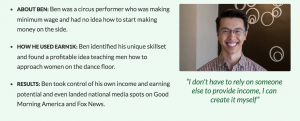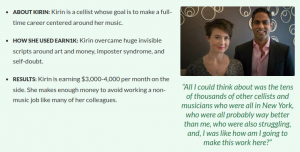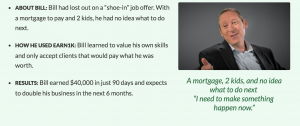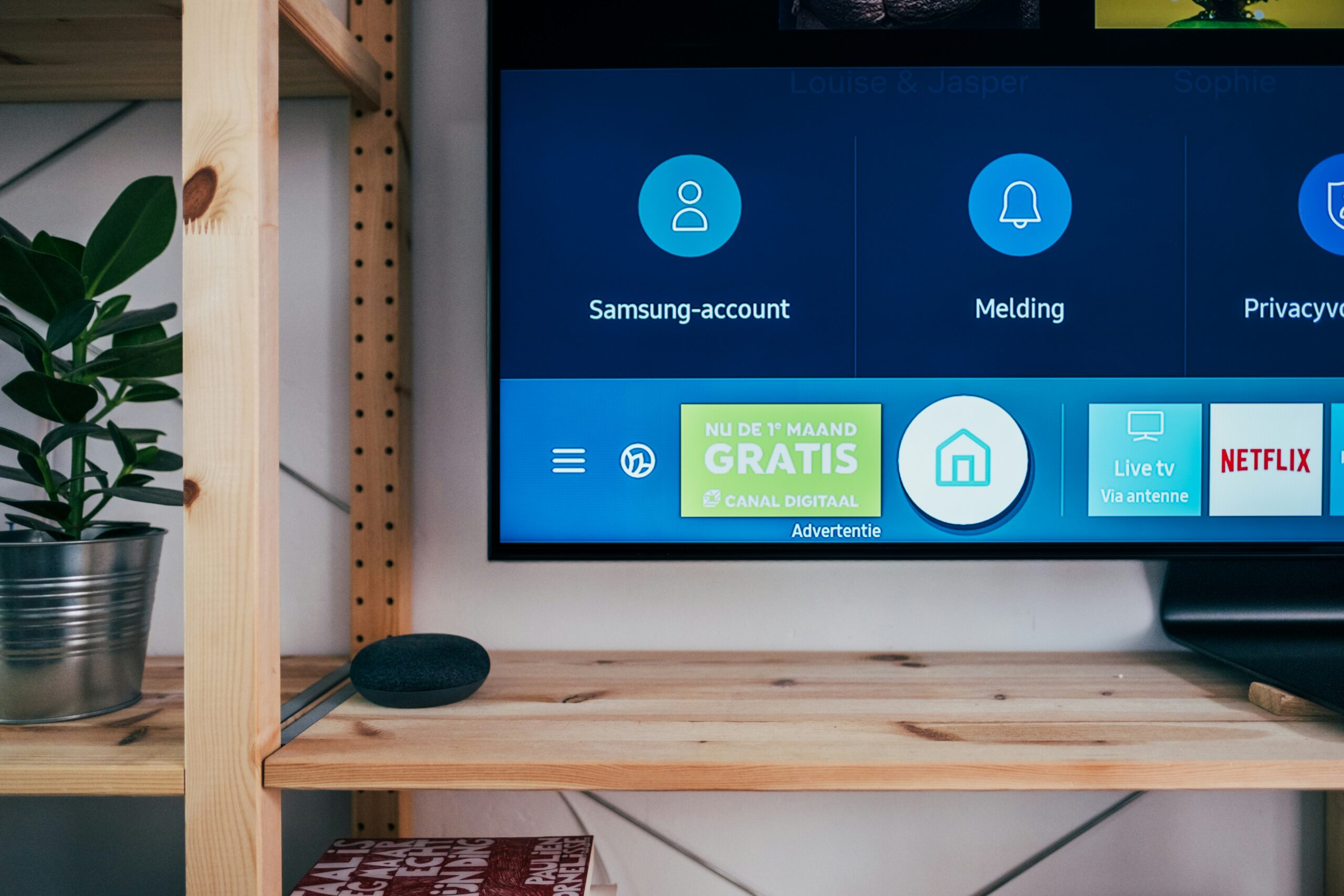
The Side Gig: Everything You Need to Start Earning on the Side
How do you take your hobbies and skills and turn them into a profitable side gig?
Let’s say you have a passion for organizing, or you like to write in your spare time. How can you help that make you $200/month, $500/month, or even $5,000/month on the side?
I’ve worked with thousands of students and I’ve found the #1 reason people don’t start making money on the side is this: They don’t know where to start.
So today, I’m going to show you:

And join over 800,000 readers getting our Insiders newsletter, where we share exclusive content that’s not on the blog:
Freelancing: The easiest way to make more money on the side
There are a few things that we need to acknowledge up front:
- The easiest way to earn money on the side is to freelance. You can start earning money immediately, you can rapidly test your offerings, and you can cut through the unnecessary work of productizing and increasing your salary.
- 95% of jobs can translate into related side gigs. But 5% of jobs could not: For example, you don’t see any freelance cardiothoracic surgeons.
- Just like dating, it will probably take repeated failures to find a good match between your hobbies and what the market wants.
That last point is very important. Sometimes people spend so much time building up a business with business cards and websites and licenses that when they actually launch and find the market won’t pay for their offering, they give up, exhausted and frustrated. I’ll show you how to streamline the process so you can rapidly test ideas and refine them (OR, skip ahead to The Overnight Business Idea Generator).
Two examples: Turning hobbies into side gigs
Example #1: How I used these principles to launch this site
I originally started “I Will Teach You To Be Ric” as a 1-hour free course that I taught at Stanford. It was never designed to make money, it was just something cool that I wanted to do. When I’d hear friends complaining about money at the dining hall, I’d say, “Hey, you should come attend this class I put together it’s free and it takes about an hour, and I’ll show you all the basics of money, banking, budgeting, saving, and investing.” The response was VERY positive. People said, “Wow, that sounds awesome!”
And then they would never show up.
Repeatedly, over 1.5 years, I struggled to have anyone show up. I would wonder to myself, “Why am I trying so hard to give people GOOD, FREE information about stuff they really need to know?” I felt like a career counselor, one of the most under-appreciated (and hopeless) jobs.
After trying all kinds of strategies to get people to attend, including emailing THEM and trying to coordinate times, I switched approaches. Instead of in-person events, I launched iwillteachyoutoberich.com so people could read it out of the comfort of their own dorm rooms. Later, I learned why this was so successful: People don’t like attending events about money because (1) it makes them feel bad about themselves, (2) the events are usually boring and/or scammy, and (3) people have to publicly admit they don’t know about money.
It was a classic mistake of not understanding my users (substitute “customers” in your business).
Lesson learned: You MUST get into your clients heads. What are their fears? Hopes? What do they care about most (Hint: How much it costs is almost never the first priority.) Similarly, once you get in their heads, you learn that the medium in which you serve your clients matters. (Is it an in-person event or a blog or a weekly phone call?) The way you approach your client matters. And the way in which you sell to prospects matters.
Example 2: How I consulted for venture capital firms
Like all of us, I know how to use YouTube, Facebook and Instagram. During college, I was able to turn that into consulting gigs with multiple venture-capital firms who wanted to learn how young people were using consumer services on the web. This consisted of me giving them a course each week online music, videos, social networks, etc.
Would you have ever thought you could turn your daily routines into a side gig? I wouldn’t have before I landed those gigs. But people were willing to pay for it because they had concrete needs: They wanted to understand how young people were using new technologies so they could remain sharp investors. Money wasn’t an issue, but time was: They’d rather hire someone who lived it than try to learn themselves. Once I’d established that I was skilled at these services — and more importantly that I could create an effective structure for teaching the VCs — they hired me.
Lesson learned: It’s not enough to simply be good at something, whether it’s freelance writing, dog walking, or graphic design. You need to know why people want your skill.
Want to build a business that enables you to live YOUR Rich Life? Get my FREE guide on finding your first profitable idea.
Everyone has skills that someone else would pay for
Two points that are important here:
-
- Your job does NOT have to be the source of inspiration for freelancing. If you’re a project manager by day, you can be a creative writer on the side. Both share similar skills, anyway! You have to be organized, create structure out of chaos, and focus on delivering on time, every time. Now you see why turning your hobbies into income isn’t some cookie-cutter formula. Because if a project manager can earn $1,000 on the side being a creative writer, what could you do? Suddenly, it’s overwhelming.
- Your job skills CAN be transferred, no matter how unique you think you are. So you’re a dolphin trainer at SeaWorld. Wow, unique job! Not really. You have skills in working with animals, obviously, which would suggest training pets. But you also have expertise in behavioral change, which many academic labs and companies would love to tap ? and pay for. You can tutor children. You can help people stop biting their nails. Or 100 different options.
Don’t simply say, “I’m a process engineer! Nobody hires freelance process engineers. I give up!”
Instead, ask yourself: What do I enjoy? What am I good at?
Here are just a few of my students who have made money with their side gigs:
A circus performer:


A cellist:


A full-time dad:


The simplified process: Matching your hobbies and skills to a side gig
It’s overwhelming to consider that you could literally have 500 potentials ways of earning money. That’s why people love simple SEO or other automatic ways to earn money on the side, which give you a repeatable formula, but rarely work.
Take it one step at a time.
What industry are you in?
Oh, finance? Ok, you probably don’t want to be a freelance investment banker. But…hmm…you spend all day doing analyses. How can you use that?
Example 1: Excel is a breeze to you. Maybe there are people (like me) who HATE Excel yet need detailed analyses for their business. Could you build models for other people?
Example 2: You’re really good at doing valuations of industries. Are there pre-launch founders who need that skill? (Alert: Observant readers will have noticed a BIG RED FLAG when it comes to pre-launch founders: They can’t pay you. So if your goal is to generate revenue, you want to re-think your target market to make sure they can afford to pay you.)
Identify your hobbies and skills ? then think more broadly.
The most common thing I hear is, “I’m a really good communicator, but I don’t know how to turn that into a side income.” That’s because you can’t.
Nobody hires a “good communicator.” They hire people to solve their problems. What does a good communicator mean, anyway? That’s just a lazy way of saying you haven’t spent the time doing research on the available options you have to channel your skills into something that’s worth money.
Get specific. Are you great at writing press releases? (I’d pay for that.) Are you great at training public speakers? (You might be able to find a specific segment of people who’d pay for that. This one is tricky, though. Can you identify why?) Are you a good communicator because you can speak Chinese? Boom, I’d instantly be a tutor for Chinese kids since their parents will love/trust someone who speaks Chinese even when tutoring their kids for any subject.
If you don’t have any marketable skills, there are still options.
Etsy is a perfect example of people making great side income and many of them don’t have any skills that would commonly be considered “valuable.” Yet they do well selling niche products to a niche audience.
If you aren’t some professional with software-engineering skills or online-marketing experience, that’s okay. Can you hammer something into a wall? (I’d pay for that.) Can you cook? (I’d also pay for that…in fact I am.) Can you walk dogs? Tutor kids in 4th-grade math? Help moms with routine tasks?
You can make money on all of these things ? good money ? without having to have some hard technical skill, as long as you find a market that will pay for them.
I want to go a bit deeper.
People are very bad at identifying their own skills. They’ll say things like, “I dunno” I guess I’m good at writing and communication, and, like, general organizational skills?? AMAZING!! HERE?S a $4,000/MONTH RETAINER!!! (Sorry, won’t happen.)
Repeat this over and over: People pay for solutions, not your skills.
For example, I was on a webcast where I was suggesting ways for people to earn money on the side, and I mentioned that I hate cooking, am not good at it, and would love it if someone cooked for me. I got an email later that night from someone who said, “Ramit, I can help. I can teach you everything you need to know over one weekend, and you’ll know 3-5 great dishes to cook.” I appreciated the offer, but wrote back, “Thanks for the offer! But you don’t understand. I don’t want to learn, I want someone to do it for me”
Again: People have problems. They want solutions.
They don’t care what you’re “interested” in. Are they too busy to organize their closet? Do they need someone to help them redesign their website? Maybe they want someone to teach their kid how to play flute.
When you make your offer, you’ll have to deeply understand what the market your prospective clients want. And then you’ll be able to turn your service offering into something so compelling…that they’ll actually pay you for it.
Find the right side gig idea for you
While it seems like finding a profitable business idea would be the easiest part of making money on the side, this simply isn’t the case. In fact, it’s often the HARDEST part of earning more.
After working with thousands of students, the two most common problems people have are:
- “I don’t have an idea!”
- “I have too many ideas. How do I decide?”
And once you have an idea, how do you KNOW if it’s any good?
I want to help you with all of these questions. That’s why I’ve put together a special Idea Generator Tool to give you faster results. You’ll get an exclusive audio excerpt from my flagship course on earning more, as well as two PDF guides to help you find your idea TODAY.
Just enter your email below so I know where to send it.


100% privacy. No games, no B.S., no spam. When you sign up, we’ll keep you posted
FAQ:
How can I earn more in less time?
By leveraging your personal skills and tapping into high-demand markets. Consider freelancing on platforms where you can command higher rates for your expertise. Think about teaching online courses or creating digital products that earn passive income while you sleep. It’s about working smarter, not harder.
How can I make money by spending less time?
Making money without sinking in hours is totally doable. Dive into the world of passive income—investing in stocks or real estate can yield returns with minimal ongoing effort. Alternatively, explore affiliate marketing, where you earn by promoting products. Your time is precious; choose avenues that maximize income while minimizing active hours. Let your investments or online content work for you.
How to make money in between jobs?
Great question! In-between jobs is the perfect time to explore flexible earning opportunities. Gig economy apps like Uber, TaskRabbit, or DoorDash offer the freedom to work on your schedule. Online freelancing for short-term projects can also pad your wallet without the long-term commitment. Consider selling items you no longer need or tapping into your creative side with crafts or digital art for sale. Every skill or asset you have can be a potential income source—get creative!
Like this blog post? Learn how to create amazing content like this that attracts and engages your target buyers with our FREE Ultimate Guide To Remarkable Content.
Written by Ramit Sethi
Host of Netflix's "How to Get Rich", NYT Bestselling Author & host of the hit I Will Teach You To Be Rich Podcast. For over 20 years, Ramit has been sharing proven strategies to help people like you take control of their money and live a Rich Life.



